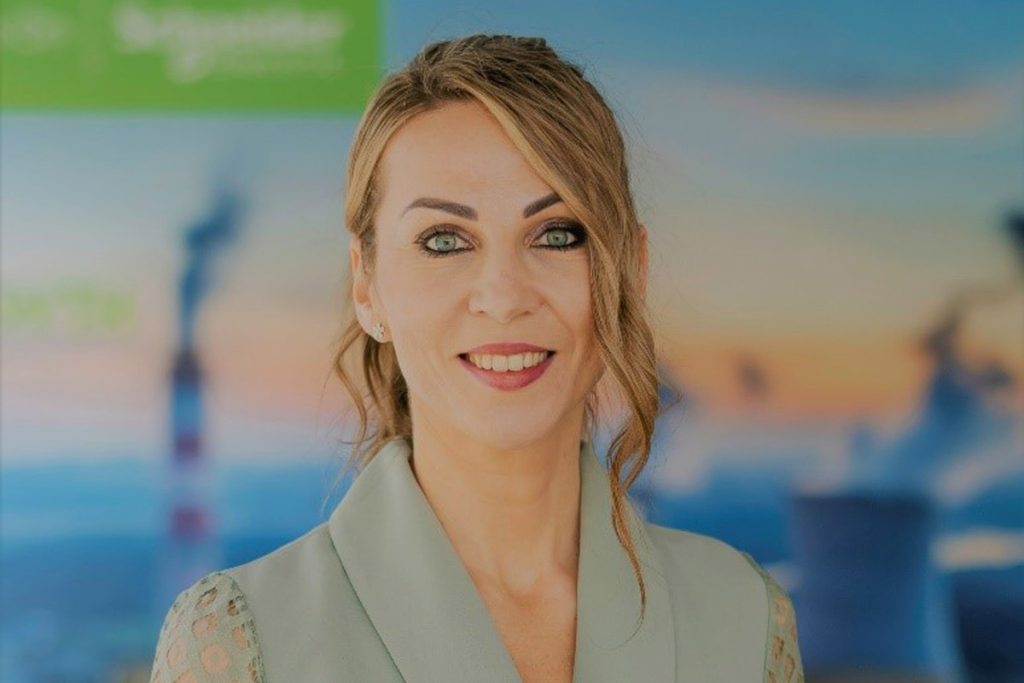
In the age of the Great Resignation and the global race for talent, companies need to evolve and adapt to the new workplace, where wellness and mental health are key, or fall far behind.
Offering a competitive salary is no longer enough for a corporation to stand out in hiring, or retaining, talent, as offering flexibility and tailoring situations to employees’ individual or unique is increasingly paramount in the “new world of work”, panellists at the Wellbeing Summit Middle East agreed. The summit is being held in Dubai from February 21 to 23.
Moderated by Arabian Business’s editor in chief Scott Armstrong, the panel, Re-engaging the Workforce through Wellbeing, brought together Natalja Kissina, HR VP at Gulf Countries Schnieder Electric, Kuresha Ramahotar, chief people and culture officer at MD Steel, and Ashok Gopal, head – people development & employee wellbeing at Mashreq Bank.https://www.arabianbusiness.com/spotlight/mental-fitness-towards-workplace-wellbeing/embed#?secret=nrzEkLPs7V
What is your helicopter view of where we are right now in terms of the workplace?
KR: I think we’re still struggling to find a balance because things are changing so quickly. We thought the pandemic would be over by 2021 and now we have new strains of the virus emerging, rules changing from time to time, some people having difficulties to travel etc.
I can say we still didn’t settle completely, we’re still looking at how things are going and then fine-tuning and trying to find a way in between that works while remaining people-centric.
NK: One part of the pandemic that effected all of us is the lack of social connection – this is key for high-performing teams and for humans. At the end of the day we are all driven by a sense of belonging.
At Schnieder, starting this year, we moved into a hybrid way of working where our employees come to the office three days a week and work remotely for two. Having said that, it does not mean it applies to all our employees because the new world of work is effecting different employees in different ways. We still have a few employees that have to be on-site to provide service to our customers, for example, so we have to be mindful that, in this new world, everything and anything must be flexible.
AG: The key operating word across the world is flux. Gone are the days that, as HR people, we strategise for long-term vision a year in advance as, these days, the long-term vision is probably five weeks away, given the rate at which everything is changing, not just with the pandemic but global events as well.

We still see a lot of organisations and bosses who’re trying to put things back the way they were before the pandemic. Is that possible?
NK: I don’t think that I will give you a quote on quote response on how HR can overcome the negative impact of the pandemic because it means different things for different people in different organisations.
The key here is to really maintain open communication and have inquisitive minds. Understanding the needs of the team is critical at this time to craft working arrangements that will work for that specific team. So for some teams, it would be yes there will be some element of transitional points in the way we work and for other teams, absolutely not.
KR: I also don’t think we will ever go back to how things were before the pandemic as people now realise they can do their job in a different way and have proper balance.
It really depends on the job, however, because some positions require you to be onsite. Until we really evolve and get to a point where some of our machinery can operate on their own, or be operated remotely, we still require some people to be on site.
This is where we are moving to listening to people and being attentive to each position and each person to see if we can cater to their needs. I don’t think we’ll ever go back 100 percent to what things were before; we have to evolve and move with the changes in the market and what people are looking for.
AG: As Churchill said, never waste a good crisis and it would be a supreme tragedy if we returned to life as it was because, out of the crisis, a lot of good things have happened.
Those that don’t learn from a lot of the lessons that the pandemic has taught us are doomed to fail. There will be certain elements of work and jobs that return to the way things were but hopefully what will never change is the increased focus on things like communication, wellbeing and this culture of connecting which may not have been as much of a focus to any great degree in the past. I think the element of “mass customisation” is here to stay.https://www.youtube.com/embed/BPk28GdH-AQ?feature=oembed
In the age of Great Resignation, how can you retain the older talents in your company while also attracting new talent among the millennials and Gen Zs?
NK: We work in a highly multi-generational workforce but again, the needs of this workforce are very different.
Gen Z and millennials need a fast paced environment where they move up the corporate ladder very fast and have an opportunity to do multiple things on one day while silver employees want to be engaged and inspired about what they do.
We should have different paths for different generations to really harness this multi-generational workforce. The problems we are solving today need all the generations around the table and so when we speak of gender diversity as part of inclusion, I would say generational diversity is key as well.
KR: Traditionally a lot of companies would compete on the salary but today it’s not the only thing that people look at. We are starting to look at it from a holistic perspective where we say wage is one thing but what am I doing on the wellbeing or development side?
If you only look at the salary, you are at a disadvantage but if you look at it from a holistic perspective, and you take into consideration the wellbeing aspect, you really get an advantage from that although it’s not an easy thing to do.
When you speak about retaining people nowadays, or attracting them, they will ask you about the benefits they’re going to have by working with you and how fast they can grow or evolve within the company.
AG: In the past, you hired a person for what he or she had between their ears. Today, if you don’t hire the person, meaning the full package, and create an environment that supports that full package, the chances are, you’re going to be left extremely undercooked as a corporate.
Now, the way we look at it at Mashreq is that we have a framework that we call the Wheel of Happiness and there are six dimensions of wellbeing that we look at. Those include professional wellbeing, community, physical and financial wellbeing, fun and family.
So, in essence, we’re trying to create a culture in which it’s not just the professional aspect of a person’s wellbeing but the full package. These types of programmes will be a necessity as we go forward, because the absence of it is going to be a disaster as companies compete on talent recruitment through them.
What’s the fallout in your view for companies that don’t wake up to this and the importance and value of mental health in the workplace?
NK: Companies that don’t pay attention to this are not in a competition with those that do, and majority do. So if you want to be out of competition, then fine don’t offer it but if you want to compete fairly in the market and pick the best talents then you really need to think about what you can do for the mental health of your employees and for any other elements of health.
Companies that engage in giving back to the communities are critical and appear more admirable. After what happened in Lebanon, we ran a relief campaign in support and the response from our team was outrageous in the positive sense of wanting to be involved. Same thing for when coronavirus was its peak in India.
Going back to mental health, at Schneider, we offer many different elements of support including our Employee Assistance Program and self-assessment tool which open for all employees.
KR: Since we’re more in the manufacturing industry, we took a different approach by having people on the ground. We’ve had yoga sessions and people going on site and speaking with [our team on the ground] to make sure that they are comfortable and healthy.
Today, more than ever, we’ve invested in active initiatives to promote exercise and psychological wellbeing mental to make sure we cater for the needs of our people who are on site.


